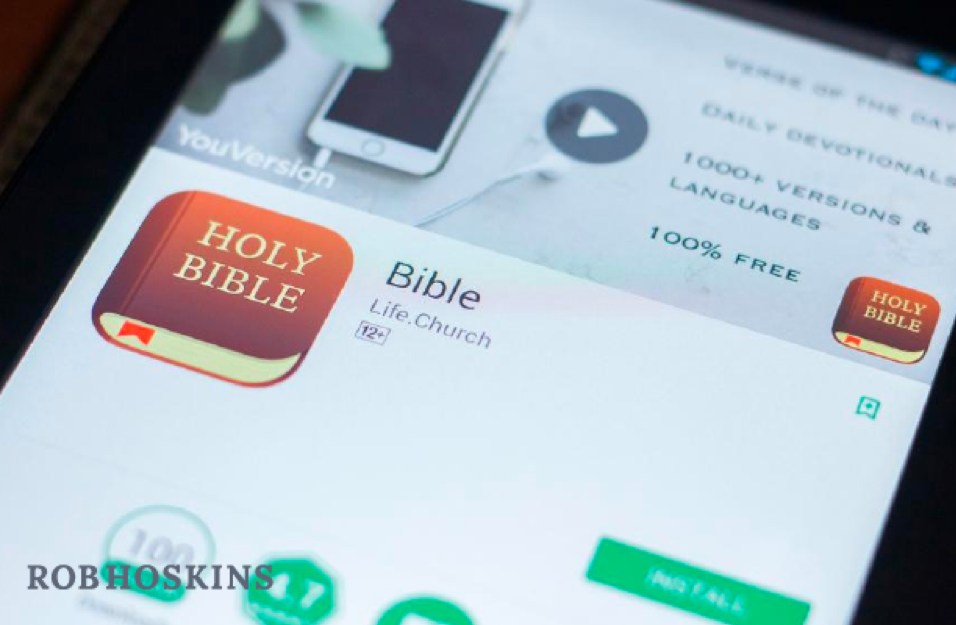Many organizations I consult for are facing the same struggle. They’ve hit a wall and can’t figure out how to move forward, grow, and successfully scale in their current context. Much of the time the barrier is the same; they’re still operating in the old paradigm where the secular is separate and unequal to the sacred. Theologically that’s simply not the case. We must be diligent about removing the veil between the sacred and the secular, and acknowledge that all of life is sacred space.
Foundational to successfully operate in this new freedom requires that everyone can fully acknowledge and embrace the priesthood of all believers. The Greek word for “clergy” is non-exclusive. In fact, it’s the opposite, encompassing all who believe and –without exception– is comprised of the whole people of God.
Exodus 19:6 explains why we have been called out of darkness, “You will be for me a kingdom of priests and a holy nation…”
As Jesus is about to leave earth, he imparts the ancient mission framed in a fresh paradigm:
I no longer call you servants, for a servant does not know his master’s business. Instead I have called you friends. Everything I have learned from my Father I have made known to you. John 15:15 (NIV)
We are included in this fresh impartation of the mission. Our current dispensation is that the Kingdom is here but not yet fully realized.
Jesus came so we could shed the Old Testament’s view of priesthood as elitist and exclusionary, and embrace the priesthood of every believer, equipped to engage ministry in every sphere of life. Jesus endowed us with a Spirit-empowered identity that offsets the old cultural practices of religion. We can now boldly declare that we are one people of God no longer bound by the divisive nature of the secular vs. sacred debate. 
Take Daniel, for example. He was secularly employed and a power player in God’s economy. The Spirit breaks out not only for a few special people or particular tasks–but on all of God’s people to collectively accomplish Kingdom tasks.
While we are each differently gifted, we are all called, and all have the Holy Spirit’s power.
“But you will receive power when the Holy Spirit comes upon you. And you will be my witnesses, telling people about me everywhere—in Jerusalem, throughout Judea, in Samaria, and to the ends of the earth.” Acts 1:8 (NLT)
I love my friend Bobby Gruenewald’s story. His day job was Internet startups and on Sunday he was a volunteer keyboard player. The executive pastor of his church saw an article in the local paper after the sale of one of Bobby’s companies and invited him to lunch with a proposal that Bobby come on staff at the church. At first, Bobby resisted, but, “Eventually my passion for the Church eclipsed my passion for business, and I joined the staff in 2001.” 7 years later, Bobby and his team made history when they launched YouVersion. It’s all sacred when we are liberated to operate in the fullness of our calling, truly embracing the priesthood of man.

When Jesus left earth, He didn’t leave us with a truncated Gospel; it is so much more than a personal salvific invitation. Accepting Christ bids us enter into His community, join the Kingdom of God, and play our part in His comprehensive mission. To be the Church today is to affirm the truth of God’s story by celebrating it, interpreting it, then enacting it in our contemporary world.
The job of the Church is to summon all people to believe and act. Every believer is invited into the Kingdom of God as an agent of purpose. It’s an invitation out of institutional, religious, and preservation ecclesiology to a new and reformed missionary ecclesiology.
Salvation is the first in a series of steps into a new life. Stepping into our sacred calling of being a holy nation, a priesthood of believers, doesn’t mean that only those who have dedicated our lives to a church or ministry vocation are living out a sacred calling. Modern-day missiology looks less like Christians living counter-culturally within society and more like living out what James Davison Hunter calls, “…the faithful presence of God [as] the means to support their mission in every sphere of creation.” Whether employed by a Christian NPO or a for-profit investment firm, the truth is we are all doing the work of the Church.
[1] https://www.charismamag.com/spirit/church-ministry/19204-lifechurch-tv-leader-bobby-gruenewald-talks-church-innovation-in-a-digital-age
[2] Hunter, James Davison To Change the World: The Irony, Tragedy, and Possibility of Christianity in the Late Modern World




8 Comments
Excellent, Rob. Part of my devotional read this morning.
Love you and so proud of you. Auntie D.
Very well put. Recently I asked one the young adult in our church how they were doing at work. She told me frustrated, and followed her answer to say the way she admires us who work in Church since we get direct blessings. Of course I had a conversation with her a long the line of priesthood of all believers. Many need to hear this! God bless you
I want to be involved again in children and youth in South Africa.
After reading today’s devotional and being intentional on wanting to step out and help others. I began digging deeper into Joyce’s Ministry to possibly find an opportunity where I can be useful towards God’s Kingdom. I am a Canadian and Joyce has been the beginning of my journey and walk with the Lord. I believe I am ready to take the next step towards being a vessel of love and hope in anyone that I can help. I would love an opportunity to be a part of this team. I stand behind and believe in all that this Ministry stands for. God Bless you all.
My only comment is that there is still very much a difference between the “profane” (That which only values this world and what it values) and the “holy” (what God values and how He wishes to shape this world). This is different from (although possibly somewhat confused with) the difference or differences between the so-called “secular” and “sacred” as in “secular music” versus “sacred music”–much of what is today considered sacred music originally was secular music–and, of course, vice versa.
That’s just my two cents worth.
excellent job,
may God bless you all…
Hi I am interested in your work in West Africa. We have a ministry in Africa and have started an ophanage in Togo west Africa. Will be more than happy to use your story books and movies in our church. Please let me know how I can receive or be on partenaship with you Ministry.
Hi Betty. Please visit the following URL for more information: https://onehope.net/contact/ministry-request/